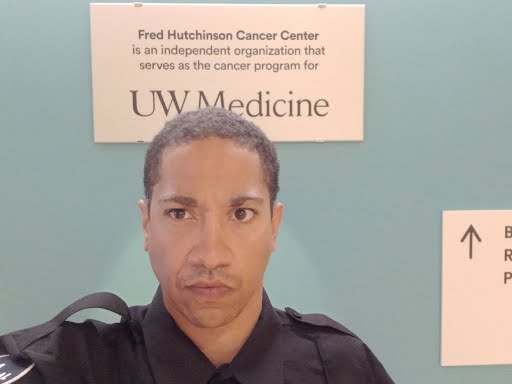
Clinical Laboratory (FHCRC)
Unveiling the Power of Precision: VirusTC and Fred Hutch Cancer Research Center's Collaborative Journey
Introduction: Setting the Stage for Superior Healthcare
In modern medicine, the fusion of technology and rigorous standards sets the foundation for breakthrough advancements in patient care. VirusTC Naturopathic Hospital recognizes this essential interplay and has forged a strategic partnership with the Fred Hutch Cancer Research Center (FHCRC). This collaboration makes fast local laboratory testing possible via the University of Washington, ensuring that patients receive rapid, accurate diagnostic results fundamental to their treatment.
This post delves into the integral role of Clinical Laboratories Improvement Amendments (CLIA) in shaping laboratory protocols and testing standards, exploring how FHCRC's CLIA-certified laboratories serve not just as testing facilities but as essential partners in groundbreaking clinical research. FHCRC stands at the forefront of improving cancer care and outcomes through rigorous quality control measures and a commitment to innovation.
The Significance of CLIA: Upholding Standards of Excellence
CLIA, or the Clinical Laboratory Improvement Amendments, represents a critical framework established by the U.S. government to ensure quality in laboratory testing. Under 42 CFR 493.1253, CLIA sets stringent requirements for laboratories to maintain high-quality control and assurance standards. This regulatory environment is indispensable for clinical research, trials, and ongoing studies, as it instills confidence in the validity and reliability of test results.
CLIA certification ensures that any clinical testing performed on human specimens adheres to rigorous standards. Labs at FHCRC exemplify this commitment to quality, ensuring that they provide reliable results for clinical use and research application. By upholding these standards, FHCRC fosters an environment where clinical and research teams can collaborate seamlessly, advancing the understanding of cancer and enhancing patient care.
Assurance of Quality in Laboratory Testing
The value of CLIA-certified labs, such as those at the Fred Hutch Cancer Research Center, cannot be overstated. These laboratories are not merely testing facilities; they are responsible for providing accurate, reproducible, and timely results that inform patient diagnosis and treatment decisions. By meeting CLIA regulations, FHCRC ensures that every assay and test adheres to administrative, technical, and performance standards, significantly reducing the error margin.
The implications of this quality assurance for patients are profound. When patients receive their diagnostic results from a CLIA-certified lab, they can trust that the outcomes reflect actual biological conditions, allowing physicians to make informed decisions tailored to their specific circumstances. Quality assurance adds an essential layer of confidence for patients and healthcare providers, establishing a reliable basis for treatment planning.
The Role of FHCRC in Translational Medicine
The Fred Hutch Cancer Research Center is pivotal in translating scientific advancements into clinical applications that improve patient outcomes. Through its extensive research and testing capabilities, FHCRC facilitates the validation of novel assays and preserves cutting-edge companion diagnostics developed in-house. This commitment to translational research underscores FHCRC's mission to bridge the gap between laboratory discoveries and practical clinical solutions.
As part of its dedication to advancing healthcare, FHCRC actively collaborates with clinical organizations and academic institutions to investigate new cancer diagnosis and therapy paradigms. By leveraging its CLIA-certified laboratories, FHCRC continually refines and validates innovative testing methods to identify cancer at earlier stages, allowing for timely intervention and improved prognoses.
Molecular Oncology: Pioneering Innovations
The domain of molecular oncology at FHCRC characterizes a meticulous approach to quality and innovation. This field combines high-quality testing with creative methodologies to facilitate clinical research, drug trials, and practical applications for physicians. By synthesizing advancements in molecular diagnostics with rigorous quality control measures, FHCRC sets the stage for pioneering new avenues in cancer treatment.
Moreover, the flexibility inherent in molecular oncology allows for a unique adaptation to rapidly evolving research needs. By collaborating with diverse research institutions and organizations, FHCRC ensures that its laboratory practices remain at the cutting edge of scientific discovery. This collaboration is instrumental in developing personalized therapies that cater to the individual needs of patients based on their specific cancer profiles.
Targeted Proteomics: The Next Frontier
Targeted proteomics represents a significant leap forward in customizing patient care through precise measurement and analysis of proteins within the body. A multidisciplinary team at FHCRC focuses on enhancing patient outcomes by enabling the reliable quantification of these biomarkers. Proteins are essential in determining how individual patients respond to various therapies, making this field crucial for personalizing treatment plans.
The targeted proteomics team employs state-of-the-art technology to generate clinically relevant data that can match patients to the most effective therapies. By integrating these insights into clinical practice, clinicians can optimize treatment plans, minimize ineffective therapies, and enhance patients' chances of favorable outcomes. This approach not only personalizes medicine but also drives advancements in therapeutic development.
Clinical Trials Pathology: Customization for Research Needs
A full-service histopathology lab at FHCRC emphasizes the significance of customized analyses for clinical trials. Specializing in custom immunohistochemistry assays, this lab is essential in patient selection for clinical trials. By tailoring testing to the specific needs of research studies, FHCRC ensures that crucial data is collected to support ongoing investigations and enhance the quality of patient care.
This laboratory collaborates closely with research-based partners to implement cutting-edge services such as multispectral immunohistochemistry and advanced image analysis techniques. Such integration fosters the development of comprehensive profiles for each patient participant, enhancing the accuracy and relevance of clinical trial outcomes. This bridge between pathology and research ultimately accelerates translating scientific discoveries into viable treatment options.
Comprehensive Clinical Labs: Diverse Testing Expertise
Within FHCRC, multiple specialized labs cater to various clinical needs, showcasing the depth and breadth of its laboratory services. The Busulfan Lab or Pharmacokinetics Lab specializes in Therapeutic Drug Monitoring (TDM) for busulfan, ensuring that patients receiving this treatment are carefully monitored to optimize therapeutic levels and mitigate potential toxicities.
Moreover, other clinical labs, including the Alliance Lab and the Swim Across America Cellular Therapy Lab, provide extensive services supporting different cancer treatment and research aspects. The Clinical Immunogenetics Lab, Clinical Pathology, and Clinical Cancer Genomics Lab contribute to a multidisciplinary approach that reflects FHCRC's comprehensive commitment to improving patient care through rigorous laboratory testing and expertise.
Advancing Cancer Treatment: The Future of Healthcare
The partnership between VirusTC and the Fred Hutch Cancer Research Center embodies a forward-thinking approach to healthcare. By leveraging CLIA-certified laboratories, VirusTC ensures that its patients benefit from high-quality diagnostic testing essential in the fight against cancer. Integrating cutting-edge laboratory practices focusing on quality assurance enhances diagnostic accuracy and personalized treatment plans.
As this collaboration continues to evolve, it is clear that the future of cancer treatment rests on the foundations laid by innovative laboratory practices, collaborative research efforts, and a staunch commitment to excellence in patient care. The work being done at FHCRC serves those seeking treatment and future generations of patients who will benefit from the advancements born from today's clinical research endeavors.
A Commitment to Quality Care
In summary, VirusTC Naturopathic Hospital's collaboration with the Fred Hutch Cancer Research Center illustrates the transformative power of certified clinical laboratories in advancing cancer care. Through adherence to CLIA standards, FHCRC ensures rigorous quality control and assurance throughout its testing processes. The result is a symbiotic relationship that enhances clinical research and patient outcomes.
Patients can take comfort in knowing that their diagnostic testing is backed by the highest quality standards, ultimately guiding their treatment decisions with confidence. As the landscape of cancer treatment continues to evolve, collaborative efforts like this will pave the way for significant advancements in healthcare, highlighting the importance of precision and quality in laboratory testing.
